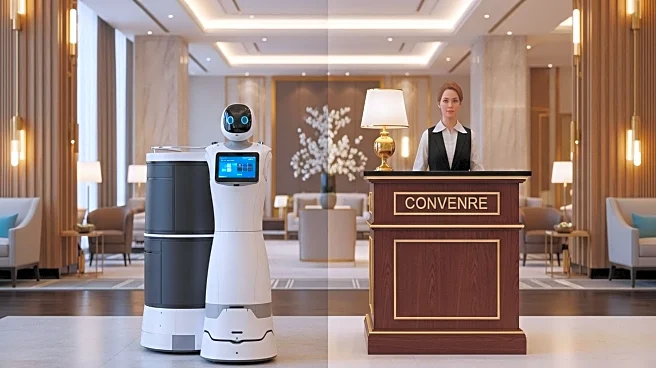What's Happening?
The hospitality industry is increasingly integrating artificial intelligence (AI) to enhance guest experiences and improve operational efficiency. AI technologies are being used for personalized guest interactions, contactless services, and predictive analytics for demand forecasting. However, the adoption of AI in hospitality faces psychological barriers, as guests and employees may perceive AI as lacking empathy and emotional sensitivity. The article suggests that hospitality leaders should focus on using AI to complement human decision-making rather than replace it, ensuring that technology supports rather than controls human interactions.
Why It's Important?
AI's integration into hospitality has the potential to transform the industry by improving service delivery and operational efficiency. However, the success of AI adoption depends on addressing psychological concerns related to empathy, control, and trust. By understanding these dynamics, hospitality leaders can foster greater acceptance of AI, leading to enhanced guest satisfaction and employee well-being. This approach could set a precedent for other industries seeking to balance technological advancements with human-centric values.
What's Next?
Hospitality leaders are encouraged to humanize AI interfaces and maintain transparency about AI's role in decision-making. They should involve employees in co-designing AI systems to empower their expertise and ensure that guests can easily access human support when needed. By addressing psychological barriers, the industry can increase AI adoption and deliver better experiences that remain human at their core.












